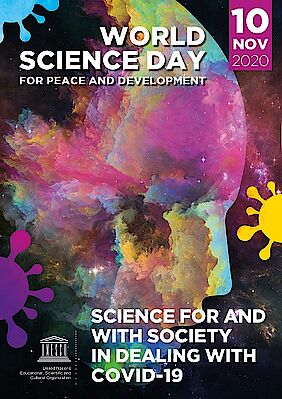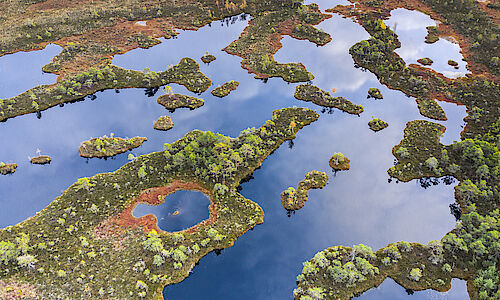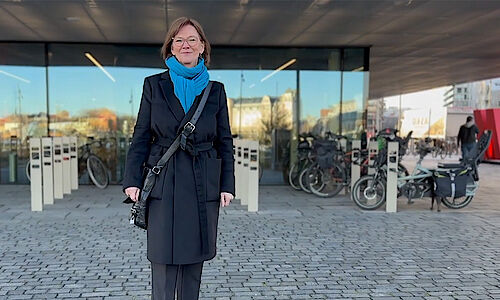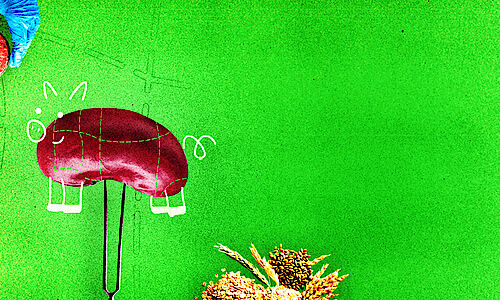News & Academies' activities
World Science Day - European Academies are calling attention to the crucial role of science for society
On today’s World Science Day, many European Academies are calling attention to the crucial role of science for society. The Science Academies are highlighting the benefits of science and the crucial role of scientific progress and evidence in solving major challenges of our time, as well in shaping effective democratic processes.
World Science Day is today, 10 November, celebrated worldwide, highlighting the benefits of science and its central role in society. The crucial role of scientific progress and evidence in solving major challenges of our time as well in shaping effective democratic processes is here emphasized by representatives of the European Academies’ Science Advisory Council, EASAC.
We are facing major global challenges, and great concerted efforts are needed if humankind is to have a secure and stable future. They concern climate change and its consequences and the need to control and mitigate its effects, for the very survival of life on our planet. Linked to climate change is how to access sufficient renewable energy sources lacking negative impact on climate and environment, as well as efficient methods for storing energy. They concern the need to supply the earth's growing population with clean water and nutritious food, grown under sustainable conditions while restoring ecosystems and reversing the precipitous loss of species and biodiversity. They concern the growing problem of obesity, today a more widespread problem than malnutrition. They concern our health and the need to cure and prevent the emergence and spread of serious diseases, not least the increasing resistance to today's antibiotics, threatening our ability to protect ourselves against infections. To cope with all these problems, we need new knowledge and efficient tools. Science is constantly working to provide us with new knowledge and tools.
The EU has committed to make it a priority to respond to these challenges by adopting Agenda 2030 and implementing the United Nation's 17 Global Sustainable Development Goals in its internal and external policies. To fulfill these obligations, political leaders have to make decisions that require insight into and input from complicated scientific issues.
Academies of Sciences play a vital role
The Academies of Science play a vital role by providing factual evidence to politicians and policy makers in a number of key areas. The European Academies’ Science Advisory Council, EASAC, an independent organization without links to industrial or financial interests, comprising the Academies of Science within the EU member states, Norway, Switzerland and the UK, synthesise scientific evidence, based on research from around the world, and provide policy advice on urgent matters with impact on our society. For society will only benefit if decisions are based on scientific knowledge; without scientific support, political decisions can have unexpected and even negative consequences.
An equally important task is to disseminate research results to the public in order to give everyone an opportunity to take a stand on issues that require scientific insight. New research findings can create fear and uncertainty, which has often its basis in a lack of information. Many issues, relating to the environmental and global warming, but also to genetic engineering, vaccinations, the use of alternative medicines, and conventional versus organic farming, may be highly contentious and need to be debated on the basis of clear scientific evidence.
The crucial role of science and scientific evidence has been particularly evident in connection to this year’s pandemic. Scientists have worked together globally in order to identify the structure of the virus and to develop diagnostic tools, as well as in the search for efficient vaccines. And science has a critical role in post-COVID-19 to inform EU policy concerning measures needed for a green transition.
What, then, makes scientific knowledge more reliable than personal opinions, pseudoscience and folktale? The crucial difference is that scientifically based claims can be verified and researchers' results must be reproducible. The scientific method is based on the systematic testing of assumptions using methods that are adapted to the problem to be solved. Scientific results must thus be able to withstand critical scrutiny, and researchers must be prepared to present the bases for their claims and answer criticisms. Scientific evidence is thus fundamentally different from speculation and beliefs.
World Science Day proclaimed by Unesco
Today, however, we do not have access to all the knowledge and the tools required to solve all the major global problems. New knowledge and new solutions are needed, and therefore new research is needed. Employment, health and future prosperity also depend on new knowledge, and investment in research is therefore an investment in the future. Research and innovation need to be prioritized both in the EU budget and within the individual Member States.
The World Science Day was proclaimed by UNESCO in 2001 to strengthen public awareness on the role of science for peaceful and sustainable societies. It has since 2002 been celebrated each year on November 10, highlighting the need to engage the wider public in debates on emerging scientific issues. For it is only through the engagement of citizens and with decisions based on scientific knowledge that we will respond to global challenges and develop viable and sustainable societies. Science must share its knowledge and raise its voice when scientific facts are ignored. For the benefit of current and future generations.
- Christina Moberg, President EASAC, member of The Royal Swedish Academy of Sciences
- Richard Catlow, Vice President EASAC, Fellow of the Royal Society
- Olivier Pironneau, Vice President EASAC, member of Académie des Sciences
- Wim van Saarloos, Vice President EASAC, member of Koninklijke Nederlandse Akademie van Wetenschappen
Read more on the websites of our member academies!
back to overview
































